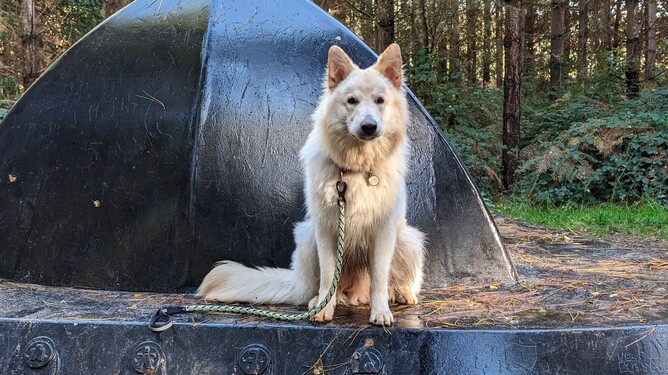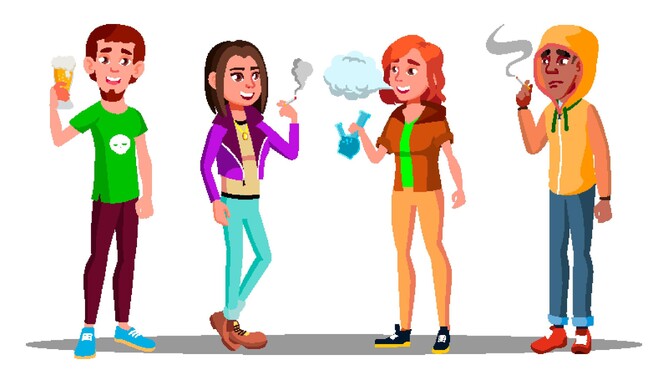Advice from Womble the Therapy Dog: Navigating the Tough Times When Your Child Might Be Using Drugs or Alcohol
Hello, friends! Womble the Therapy Dog here, with a wagging tail and a heart full of love. Today, I want to talk to you about a serious topic: what to do if you suspect your child might be using drugs or alcohol and trying to keep it a secret. This is a tough situation, but remember, you’re not alone, and there are ways to handle it with care and compassion.
Sniffing Out the Signs
Just like I sniff out hidden treats, you might notice signs that something’s not quite right. Maybe your child’s school work is dropping, they’re hanging out with a new crowd, or at different times, or they’re acting more secretive. Trust your instincts—parents often sense when something’s wrong.
Keep Calm and Communicate
When you’re worried, it’s natural to feel scared or even angry. But barking loudly won’t help here. Instead, stay calm and open up a conversation. Choose a quiet moment, and gently let your child know you’re concerned. For example:
“I’ve noticed you’ve been acting differently lately, and I’m worried about you. Is there something going on that you’d like to talk about?”
They may not admit it the first-time round, but don’t challenge it, leave the door open. That moment of trust from you in what they say, may make it easier to feel they can trust you with a bit more honesty next time! Calling them liar won’t help, I wouldn’t want to go to someone if they kept calling me a bad boy like that too!
Listen with Your Heart
As a therapy dog, I know the power of listening. Give your child a chance to speak without interrupting. Show them you care about their feelings and experiences. Sometimes, just knowing someone is there to listen can make a big difference.
The time to share concerns about the choices being made, and reinforcing boundaries and house rules will come, it’s not often best received if pounced on to soon!
Understanding the Temptation
Now, let’s dig a little deeper, just like when I’m searching for my favourite bone. Why might children from any background be tempted to try drugs or alcohol? There are a few reasons:
Seeking Comfort: Sometimes, kids use substances to cope with stress, anxiety, or sadness. They might be trying to escape from difficult emotions or situations.
Peer Pressure: The desire to fit in with friends can be powerful. If their peers are using drugs or alcohol, your child might feel pressured to join in, even if they know it’s not right.
Curiosity and Experimentation: Adolescence is a time of exploration. Trying new things, including risky behaviours, can be part of their journey to understand themselves and the world around them.
Family & Environmental Dynamics: Even in loving families, children might use substances to express unresolved conflicts or to communicate something important. Understanding the dynamics at home can provide insights into their behaviour.
Sensory: Drugs and Alcohol can provide new physical feelings, and emotional experiences. And sometimes that’s enough to try again to make sense of them, be sure of the original experience, and can be appealing just for a while and not always long term.
Taking Action Together
If you suspect your child is using drugs or alcohol, it’s important to take action, but do it together. Here are some steps you can follow:
Seek Professional Help: Consider reaching out to a therapist or counsellor who specializes in adolescent behaviour and substance use. They can provide guidance and support for both you and your child.
Set Clear Boundaries: Let your child know that while you love them unconditionally, using drugs or alcohol is not acceptable. Set clear, consistent boundaries and consequences.
Offer Support and Alternatives: Encourage healthy activities that your child enjoys. Whether it’s sports, music, or spending time with family, positive outlets can help them cope with their feelings.
Stay Connected: Keep the lines of communication open. Regularly check in with your child and show interest in their life. Your support and presence are crucial during this time.
Tail-Wagging Hope
Remember, every dog has its day, and so does every family. With love, patience, and the right support, you and your child can get through this challenging time. Just like I’m here to offer comfort and companionship, be there for your child. Together, you can find your way back to a happy, healthy path.
Stay pawsitive, friends!
Womble the Therapy Dog
We at TMH can support with issues addressed in this blog.
Where else can you go for support with alcohol or drug misuse?
If you're concerned about your child's drug or alcohol use, there are several support options available in Suffolk. Here's a guide to some of the resources.
In a crisis, always call 999 and follow the instructions.
First Step: Consult Your GP
Your General Practitioner (GP) should be your first point of contact. They can provide initial advice, conduct assessments, and refer you to appropriate services. Consulting a GP ensures you get professional guidance tailored to your specific situation.
Other Local Support Services
Turning Point Suffolk Recovery Network
Offers support for both adults and young people, including harm reduction, structured group work, recovery support, outreach, and family interventions.
Telephone: 01473 220240, Email: Suffolk@turning-point.co.uk.
Suffolk Family Carers
Provides support to families and carers affected by substance misuse.
https://www.suffolkfamilycarers.org
Iceni
Offers a range of support services, including help for families affected by addiction.
Rehabilitation and Treatment Centres
Sanctuary Lodge
Services: Offers both inpatient and outpatient rehabilitation programs, including detox, therapy, and aftercare. (https://www.sanctuarylodge.com) for more information.
Serenity Health: Provides comprehensive rehab programs with a focus on holistic recovery, including family support and aftercare. (https://www.rehabclinic.org.uk) or call 0800 118 2892.
Support Groups
Alcoholics Anonymous (AA): Various locations across Suffolk offering peer support for those struggling with alcohol addiction.
https://www.alcoholics-anonymous.org.uk
Narcotics Anonymous (NA) Meetings: Provides support for drug addiction with meetings held weekly.
SMART Recovery: Facilitates meetings focused on self-management and recovery training.
https://www.smartrecovery.org.uk
Additional Resources
Talk to Frank: Support and Resource for information and advice on drug use.
Al-Anon Family Support Groups: Provides support to families and friends of problem drinkers.
These resources offer a range of support services to help you and your family navigate the challenges of substance misuse. Don't hesitate to reach out for professional help to ensure the best care and support for your child's recovery, including us at TMH.
The above are services known locally/nationally and shared to support patients and families searching options. This list is not exhaustive or intended to be an endorsement by TMH.
The above details were updated and last checked in May 2024.


